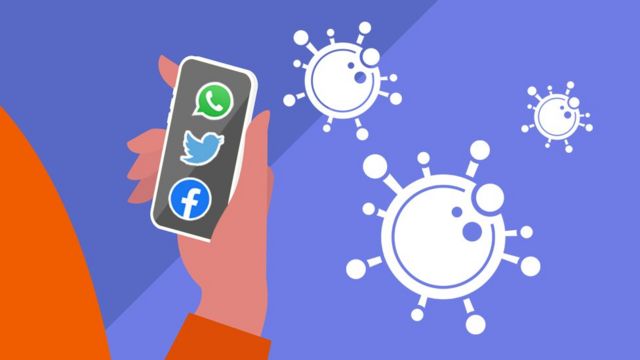Coronavirus Has Revealed the Power of Social Networks in a Crisis
The Novel Coronavirus was declared a deadly disease across the world. This was a sign for the governments to take urgent and immediate action. However, many feel the reaction from some countries was too little, too late.
Regardless of this, human beings took early measures to defend themselves, their families, and their groups. Some reacted through panic shopping for and stockpiling goods, revealing how fragile supply chains had been (even though Brexit formerly raised this issue). Groups also mobilized themselves to reach out to exposed and isolated humans and to assist and resolve their issues. Often using social network services such as Facebook and WhatsApp to create businesses focused around a geographical location to coordinate sports was deemed helpful.
“Crowdsourcing” is a term derived from “outsourcing” that has been used to describe this phenomenon, in which organizations on Social networking app development are created around user wishes through the customers themselves, instead of being coordinated centrally. Unlike micro-volunteering structures, such as NextDoor, Neighbourly, or TaskRabbit, where folks that require duties to be finished (either online or in the real world) promote it their challenge and remuneration, organic collaboration via social network groups has numerous benefits. Users are already familiar with the communication structures of social networks including Facebook and the friend’s networks they need are already in the region.
How Social Media Helped?
Being home all day clearly increases media intake, whether it’s streaming indicates or finding connections throughout social platforms. FB, Instagram, LinkedIn, Twitter, Snapchat, and Reddit have all suggested a great increase in engagement month over month. People are seeking to connect with the world outside of their instantaneous surroundings, and social media communities are supporting to supplement these relationships. Here are some common trends that we’re experiencing:
Paid Social CPMs have seen a lower, suggesting less investment in the ad public sale, However, the target audience isn’t deterred and is sincerely engaging regularly with manufacturers. As per eMarketer, the coronavirus has brought on many advertisers to preserve retargeting campaigns, alter their media allocation, pause all advertising and marketing efforts, and even cancel campaigns completely. However, social media users on systems are engaging more than ever.
We’ve experienced a higher click-through on-brand advertisements, increasing up to 36%, as FB users are trying to browse and discover new content material, which has cut fees almost in half. Depending on the vertical conversion fees, we have maintained, or seen an increase, with already shifting techniques.
Messaging and conversation within social network services have expanded drastically. According to a report, a 50% growth has been witnessed in the usage of Facebook’s messaging platform, specifically from the regions which were hit the hardest due to the virus. Voice and video calling doubled over Messenger and WhatsApp. On Snapchat, there has been a spike in the utilization to stay connected with pals; snaps sent between friends reached an all-time high. Even its call feature usage increased by 50%. All this shows that social media customers are relying closely on those styles of verbal communication features within applications to stay related to their networks.
Customers are turning to positive systems for more wonderful stores, along with Pinterest and Reddit. On Pinterest, at some point in the week of March 21st, there has been an all-time high in stored pins and searches than every other weekend.
Customers are looking for instantaneous activities at home and methods to break out the virus information. The identical shift will be seen on Reddit, as entertainment and DIY communities received a growth in positive categories by using 10%. These classes include Gaming, Generation, Education and Computing, and artwork and layout hobby corporations. Structures that can be heavier in content and conversation surrounding COVID-19 are Facebook, LinkedIn, and Twitter.
People are expressing themselves through social content creation. Rising systems like TikTok more engagement on the app, and a steady, steady movement of new customers becoming a member of. The global active users on such platforms have grown significantly as per multiple reports. This has together given rise to users creating new motion pictures. This fashion has additionally been going on at the expert enterprise platform, LinkedIn, in which there is a 60% growth in the content introduction.
Live Streaming is officially “in.” There’s a massive use case of live streaming being a tool to boom followings on money owed because viewers crave the interactivity that the function gives. The joining of Livestream has ended up being more organic, and social media apps have replied to the trend with the aid of enhancing its features to make the functionality even easier.
Even as the spike in live streaming may also appear obvious for Instagram live and TikTok live, and gaming international, which has been taking a component in this for quite some time already. Twitch is also seeing an all-time high in consumption as an increase in international viewership grew 44% from January to March.
What’s the role of Social Going forward?
For years, we have been witnessing the gradual descent of organic media. And as an employer, we advocate our customer’s attention more to paid marketing. Now, the cutting-edge circumstances have changed fashion; organic media has once again taken full-degree as this pandemic forces a new need for brands to have interaction with their clients. However, brands need to be cautious about how they speak with them.
As store closures throughout the globe have impacted in-store retail purchases, the focus has shifted towards a revised eCommerce method with an evolving contingency plan. Be organized to make choices quickly, while being conscious of commercial enterprise outcomes and processes which include stock, distribution, subscriptions, and many others. About 20% to 30% of customers say that they’re already spending much less on regular classes which includes each day in-save purchases, restaurant outings, and nearby leisure sports. This means 70% to 80% have no longer altered their planned spending on those objects.
Wrapping Up
To set up a trust in the systems used for communications, Social networking app development needs to be open and obvious, in particular, if it is being utilized in preference to centralized management of data. Facilitating network resilience via social media systems with lightweight programs can be part of a broader collective intelligence approach to destiny disruptive activities on a comparable scale to COVID-19.
During the last numerous months, we’ve experienced a sizable upheaval in the way that brands speak to their audiences and the way social media systems are facilitating these conversations across the globe. One component is positive — “business as typical” isn’t the way forward, and your brand method wishes to adapt to shape this moment.




